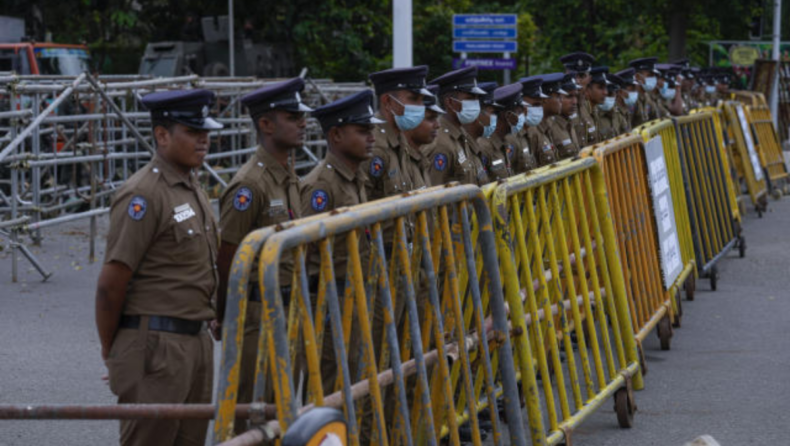
Despite being unpopular with the general population, Ranil Wickremesinghe was chosen as the new president of Sri Lanka by the country’s parliament.
After months of widespread protests, Mr. Wickremesinghe has the difficult challenge of bringing the nation out of its economic crisis and reestablishing order.
In a legislative vote, he easily defeated his major opponent for the position, Dullus Alahapperuma. He won with 134 votes to 82.
Gotabaya Rajapaksa was the former president of Sri Lanka. He left the nation last week.
Thousands of protestors attacked his presidential mansion and other government facilities. They demanded his resignation. He fled to the Maldives and, subsequently, Singapore.
The Rajapaksa political family‘s close supporter, Mr. Wickremesinghe, he was chosen prime minister in May, he has also been called upon to quit.
In protests against his leadership last week, protesters torched his personal residence . Also surrounded his prime ministerial office in Colombo.
Many people expressed their sorrow and regret after his triumph
On Wednesday, a lot of people lamented his victory and voiced anguish.
“The outcome totally disgusts me.” “I find it incomprehensible that 134 individuals—MPs who are tasked with representing the people—have entirely disregarded their needs,” Jeana De Zoysa, an activist stated.
Many see Mr. Wickremesinghe as a cunning politician who has remained in office despite the fact that his party lost the 2020 election. It did not succeed in winning any seats. The one seat it did win—for which Mr. Wickremesinghe put himself forward. It was decided upon using the party list method, which took into account the total number of votes cast.
He was a former six-term prime minister who lost his first two bids for the presidency. He will complete the remainder of the presidential term. It runs until November 2024, thanks to his victory on Wednesday.
He urged cooperation and bipartisanship moving forward
On Wednesday, he won the election with the support of Rajapaksa’s government. He made an appeal for cooperation and bipartisanship going ahead.
He informed the legislature that the country was “in a very tough state” and that “huge difficulties ahead” were there. Due to severe shortages of food, gasoline, and other necessities. As well as the fact that the nation is almost bankrupt. Sri Lanka has been plagued by demonstrations for months.
Mr. Wickremesinghe wants to restore political stability. Later, the nation can restart talks with the IMF over a rescue package.
He participated in these negotiations last month. The governing Sri Lanka Podujana Peramnua (SLPP) party said that the majority of its members supported him because of his background in business.
“Ranil Go Home”
According to general secretary Sagara Kariyawasam, “Ranil Wickremesinghe is the only person with the expertise, the know-how, and the potential to deliver answers to the economic crisis.”
It is yet unknown if he will be welcomed by demonstrators. Many of them claim he is a member of the political class responsible for the nation’s economic disaster.
In anticipation of protesters, barriers were erected outside the parliament on Wednesday before the results were announced.
However, the demonstrations were mostly quiet. Following the outcome, several protesters gathered at the Galle Face Green site chanting “Ranil Go Home.”
Some people worry that Mr. Wickremesinghe will now repress the movement, which has drawn hundreds of thousands of ordinary people onto the streets demanding change.
After protestors stormed and occupied government facilities last week, he took over as acting president and instructed the military to take whatever action was required to restore peace.
This week, he also prolonged the declaration of a national state of emergency to put a halt to any flare-ups.
However, his immediate concerns include finding fuel sources and controlling public unrest. It will require tackling societal bitterness, rage, and disappointment.
In the vote on Wednesday, Mr. Alahapperuma, a renegade MP in the ruling party who won the support of the major opposition, was his biggest rival. Despite promising to “put an end to the deceptive political culture,” he was unable to get enough support to implement his cross-party government commitment in Sri Lanka.













